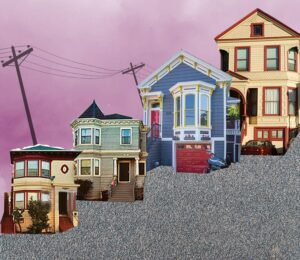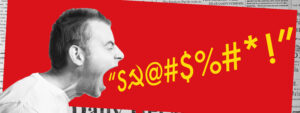Umbrella terms, or terms that are used to refer collectively to a group of people sharing similar identities, are meant to be inclusive. In a culture where “gay” is often used synonymously with “non-heterosexual orientations,” I can understand the need for an all-encompassing umbrella term for the LGBTQIA community. Using “LGBTQIA” as an adjective, especially in verbal discussions, sounds clunky and awkward. “QUILTBAG” just sounds ridiculous.
Recently, the community at large seems to have settled on “queer,” a reclaimed slur that has been gaining traction as a catch-all term for LGBTQIA folk.
Objectively, I can understand the appeal of “queer” as an umbrella term. It’s an actual word, first of all, easier to use in conjunction with nouns like “culture,” “community,” and “representation.” I can also understand the potentially empowering practice of reclaiming a word that has been used as a tool of oppression. But as a lesbian who has been referred to more than once as a “queer woman,” often without my consent, I’m uncomfortable with the usage of “queer” as an umbrella term.
The most obvious issue with “queer” as an umbrella term is that it is still used pejoratively against the LGBTQIA community. It is still used to oppress and dehumanize, and it is therefore still a slur. It seems obvious to me that any word considered a slur should not be applied to anyone without their consent. Intentionally or not, that is exactly what happens when “queer” is used to refer to every person under the LGBTQIA umbrella.
“Queer” also seems to have replaced terminology for the identities it’s meant to affirm. I can’t tell you how many times I’ve heard people refer to celebrities who have come out as gay or bisexual simply as “queer.” I understand that this is borne from an admirable effort to be inclusive, but the end result is the opposite – using “queer” as a term for those who have already defined their sexual orientations publicly is an act of erasure, and it alienates those who, like myself, remain uncomfortable being associated with the term.
Of course, I have no problem with people choosing whichever labels they feel suit them best. For some, reclaiming slurs is an empowering way to reject oppressive ideals or stereotypes imposed upon them. But for myself and many others like me, being referred to as “queer” is at once deeply upsetting and isolating. Gathering the courage to tell someone with benign intentions that they have upset you is always hard, but it’s even more difficult when you know that what you say can often be interpreted as “rejecting” your identity, which couldn’t be further from the truth. There are simply labels you maybe more comfortable with than others.
So what are we to do? Well, until the community decides on a blanket term that a) has never been used as a slur, and b) is inclusive of the myriad identities that have recently been accepted as falling under the LGBTQIA umbrella, adhering to the clunky yet inclusive acronym seem to be the best way to go.
If you’re unsure whether or not someone is comfortable being referred to as “queer,” just ask! It’s always better to be sure.


